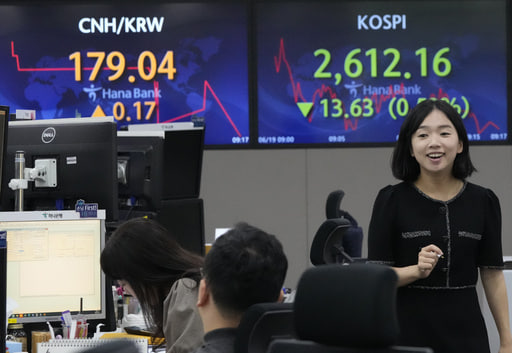Telegram's Founder Arrested: Is This a Slippery Slope for Encryption and Privacy?
Meta Description: Telegram founder Pavel Durov's arrest in France sheds light on the ongoing battle between privacy, security, and government regulation. We delve into the implications of this event for the future of encrypted messaging apps and the growing tension between tech giants and authorities.
The arrest of Pavel Durov, the founder of the popular messaging app Telegram, has sent shockwaves through the tech world. French authorities detained Durov at Paris' Charles de Gaulle Airport on August 24th, citing concerns about the platform's alleged lack of regulation and its potential role in facilitating criminal activity. This incident has sparked a heated debate about the delicate balance between privacy, security, and government oversight in the digital age.
While Telegram boasts over a billion users globally, its decentralized nature and end-to-end encryption have made it a haven for privacy-conscious individuals and groups seeking secure communication. However, this very feature has also drawn scrutiny from authorities concerned about the potential for misuse by criminals and terrorists.
Durov's arrest is a stark reminder of the growing tension between tech giants and governments worldwide. As encrypted messaging apps like Telegram gain mainstream adoption, authorities are increasingly seeking ways to access encrypted data, citing national security concerns. This raises crucial questions about the future of online privacy and the role of technology companies in protecting user data.
Is This the Beginning of a Crackdown on Encrypted Messaging?
Durov's arrest has fueled fears that authorities are embarking on a wider crackdown on encrypted messaging apps. This concern is not unfounded, as governments across the globe have been pushing for backdoors in encryption algorithms to enable surveillance.
The implications of this trend are far-reaching. If governments succeed in forcing tech companies to compromise their encryption, it could have a chilling effect on online privacy and freedom of expression. Users might be hesitant to use encrypted messaging apps, fearing that their communications are no longer truly secure. This could also lead to a decrease in innovation in the tech sector, as companies become wary of developing products that could be subject to government intrusion.
The Need for a Balanced Approach
It is crucial to strike a balance between ensuring national security and protecting individual privacy. While governments have a legitimate interest in combating crime and terrorism, they must do so without sacrificing fundamental rights.
One approach could involve establishing clear guidelines for encrypted messaging apps, outlining acceptable levels of transparency and cooperation with law enforcement. This could include measures such as requiring companies to disclose basic information about their users, such as their names and contact details, while still safeguarding sensitive data like encrypted messages.
Another avenue is to explore alternative approaches to surveillance, such as focusing on metadata analysis rather than trying to decrypt encrypted messages. This strategy could provide valuable insights into criminal activity without compromising individual privacy.
The Future of Telegram
Following Durov's arrest, Telegram's future remains uncertain. The company has maintained that it complies with EU laws, including the Digital Services Act, and that its moderation practices are in line with industry standards. However, the arrest suggests that authorities are not satisfied with Telegram's current approach to user privacy and security.
It remains to be seen how Telegram will respond to this pressure. The company may be forced to make concessions to appease authorities, potentially impacting its core principles of user privacy. Alternatively, Telegram could choose to stand its ground, potentially facing further legal challenges and restrictions.
The Importance of Open Dialogue
The debate surrounding encrypted messaging apps and government surveillance is complex and multifaceted. It requires open dialogue and collaboration between governments, tech companies, and civil society.
It's essential to ensure that any regulations or policies are based on principles of transparency, accountability, and respect for human rights. Governments must avoid creating a climate of fear and distrust, while tech companies must demonstrate their commitment to protecting user privacy and security.
FAQ
1. What is Telegram?
Telegram is a messaging app that allows users to send text messages, photos, videos, and documents. It is known for its end-to-end encryption, which ensures that only the sender and recipient can read messages.
2. Why was Pavel Durov arrested?
Durov was arrested by French authorities on suspicion of Telegram's alleged lack of regulation and potential role in facilitating criminal activity.
3. What are the potential implications of Durov's arrest for Telegram?
The arrest could result in further pressure on Telegram to comply with government regulations, potentially jeopardizing its commitment to user privacy.
4. What are the arguments for and against government regulation of encrypted messaging apps?
Proponents of regulation argue that it is necessary to prevent criminal activity and protect national security. Opponents argue that regulation could compromise user privacy and freedom of expression.
5. How can we ensure a balance between security and privacy?
A balanced approach could involve establishing clear guidelines for encrypted messaging apps, exploring alternative surveillance methods, and promoting open dialogue between governments, tech companies, and civil society.
6. What is the future of encrypted messaging apps?
The future of encrypted messaging apps is uncertain. Governments may continue to push for backdoors in encryption, while tech companies may resist these efforts, leading to ongoing tensions and legal challenges.
Conclusion
Pavel Durov's arrest is a pivotal moment in the ongoing battle between privacy, security, and government regulation. It highlights the complex challenges facing encrypted messaging apps as they strive to balance the needs of users with the demands of authorities.
The debate surrounding encrypted messaging apps is far from over. As technology continues to evolve, so too will the challenges of safeguarding online privacy while ensuring public safety. It is essential to approach this issue with caution and to prioritize a balanced approach that respects individual rights while protecting national security.



